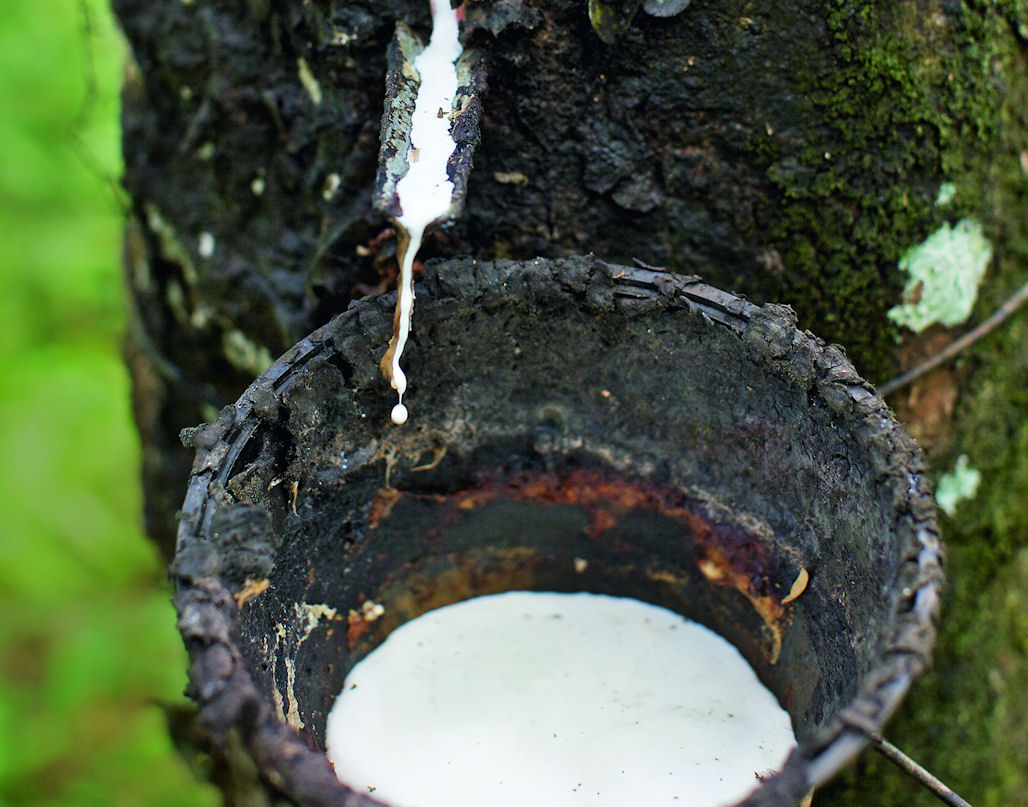Continental: Working to improve sustainability within Indonesia’s rubber supply chain
 To safeguard and monitor sustainable rubber production, Continental and GIZ will implement a traceability system
To safeguard and monitor sustainable rubber production, Continental and GIZ will implement a traceability system
A partnership between Continental and the German Corporation for International Cooperation (the Deutsche Gesellschaft für Internationale Zusammenarbeit, or GIZ) aims to improve the sustainability of the natural rubber supply chain in Indonesia, the world’s second largest producer of natural rubber. The goals of the collaboration are to develop a criteria catalogue for the sustainable production of natural rubber, to train farmers in sustainable production in accordance with these criteria and to track the rubber from smallholders all the way to production at Continental. By doing so, the partners expect that this optimisation of the supply chain, paired with increases in rubber quality and yield, will generate higher incomes for rubber tree cultivators.
The partnership between Continental and GIZ is taking place as part of the develoPPP.de programme initiated by the German Federal Ministry for Economic Cooperation and Development (BMZ). To ensure that supply chain partners are on board, memorandums of understanding have been signed with two suppliers.
Rubber trees grow in areas where rainforest is also found, and it is therefore important to ensure the cultivation of rubber trees doesn’t lead to deforestation. To safeguard and monitor sustainable rubber production, Continental and GIZ will implement a traceability system and increase the traceable production of rubber in West Kalimantan (Borneo) over the next three years. In total, 400 farmers will be trained to grow high-quality rubber in accordance with clearly defined sustainability criteria. An electronic system will be developed to ensure full traceability of the raw material along the entire supply chain.
“Our objective is to establish a traceable and sustainable supply chain and set a best practice example for the production of natural rubber,” said Nikolai Setzer, who is in charge of corporate purchasing at Continental as well as the Tire division. “The partnership with GIZ gives us access to local players with whom we need to achieve traceability and sustainability.”
Other means of facilitating sustainability
In addition to developing its partnership with GIZ, the Sustainability Management team within Continental’s Corporate Purchasing section is currently preparing a specific natural rubber sustainability policy, which will be published during the course of this year. This policy adds to existing policy and enforcing mechanisms to avoid non-compliance behaviour in the supply chain, and is designed to further reinforce the “unquestionable commitment of the corporation to securing a healthy and compliant supply chain and the zero-tolerance attitude toward deforestation, land grabbing and other practices that harm local populations and the entire ecosystem.” At the same time, Continental representatives on the World Business Council for Sustainable Development (WBCSD) are working to establish an industry standard for the sustainability of natural rubber. Eleven leading global tyre manufacturers are involved in the WBCSD’s Tire Industry Project.
Furthermore, in 2017 Continental worked with a service provider to establish a sustainability evaluation for existing and potential suppliers on the basis of standardised questionnaires. The company says the scope of this evaluation is enormous as it has to cover a couple of hundred companies currently supplying raw materials to its locations. At present, more than 80 per cent of raw material suppliers to Continental’s Rubber Group have already been evaluated and further development activities already begun.



Comments